Flt Sgt Peter Brown: Hundreds attend funeral of WW2 RAF airman
- Published
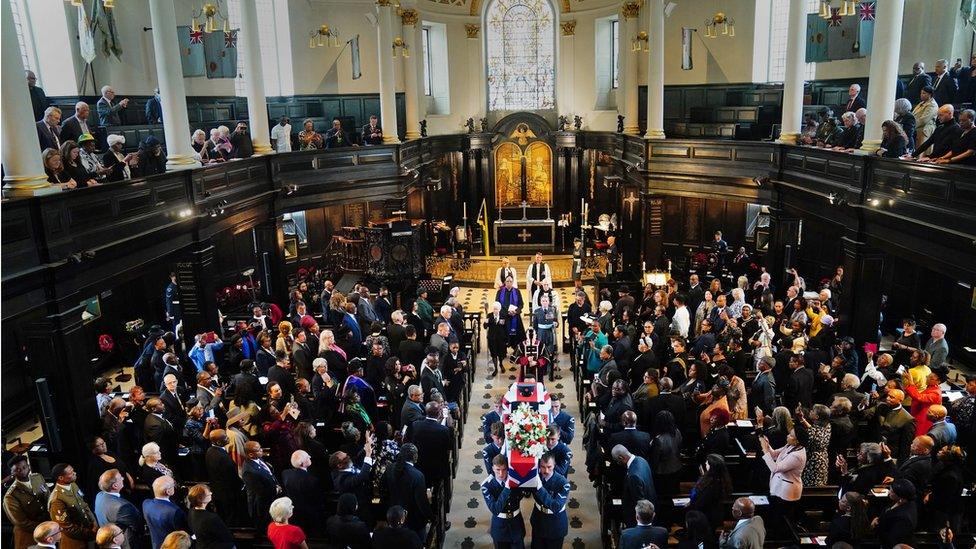
Hundreds of members of the public, members of the armed forces, representatives of the Caribbean community, friends and neighbours attended
Hundreds of people attended the funeral of a World War Two RAF airman at a historic Westminster church, after a campaign for a "fitting send-off".
Flt Sgt Peter Brown, originally from Jamaica, was one the last so-called "pilots of the Caribbean", a group of Afro-Caribbean volunteer RAF personnel.
He died in at his home in Maida Vale, north London, in December aged 96.
Flt Sgt Brown's coffin was draped with a Union Flag at St Clement Danes Church, the Central RAF Church.
It was also adorned with an RAF hat, a spray of flowers and his war medals.
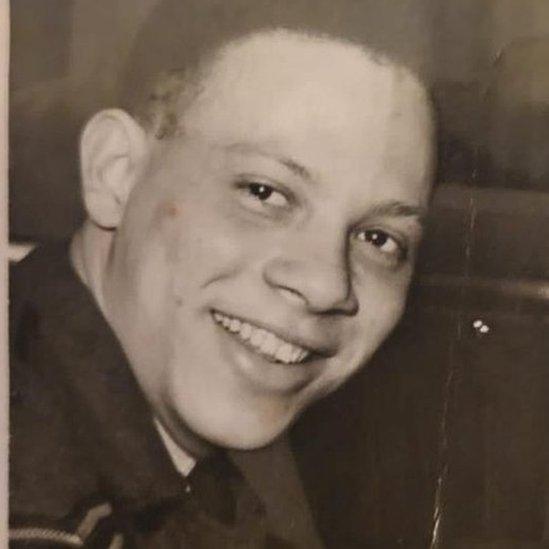
Flt Sgt Brown volunteered to serve for the UK "in our hour of deepest needed", according to the RAF reverend who conducted the service
Chief of Air Staff, Air Chief Marshal Sir Mike Wigston attended the service, along with hundreds of members of the public, other members of the armed forces, representatives of the Caribbean community, friends and neighbours.
Several celebrities were also at the service, including Batman Begins and Outlander actor Colin McFarlane, Top Boy star Michael Ward and Trevor Michael Georges, who plays Ed Bailey in Coronation Street.
Mr Brown, who was born in Jamaica in 1926, enlisted in the RAF Volunteer Reserve in September 1943 and became one of the so-called "Pilots of the Caribbean", carrying out missions as a radio operator and gunner.
Brooke Alexander, a distant cousin, flew to London from Jamaica for the service, having been tracked down by genealogists investigating Flt Sgt Brown's life story.
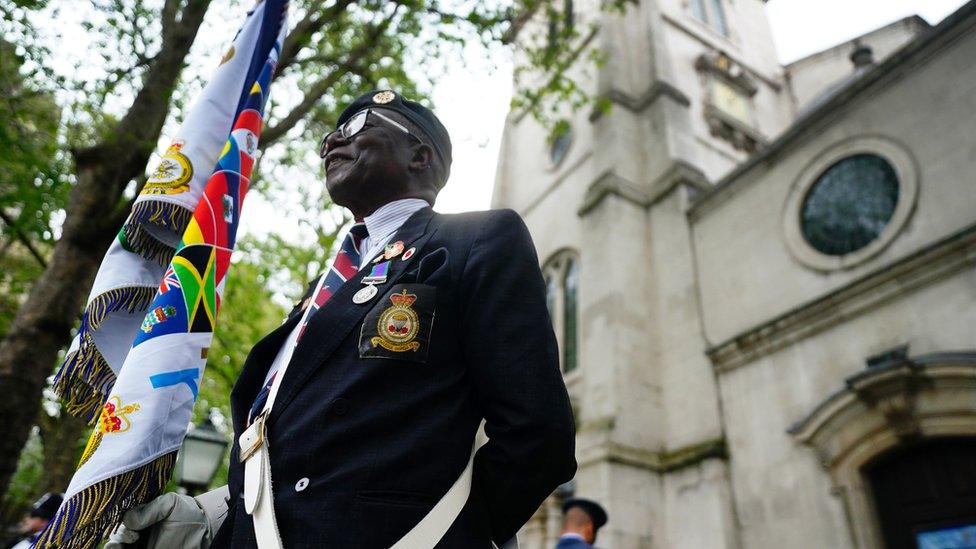
A guard of honour was conducted outside St Clement Danes Church, the Central Church of the RAF, in Westminster
Ms Alexander said it was "absolutely wonderful that Westminster, the RAF and everyone decided it was worth the effort to honour him in a way that is befitting".
Flt Sgt Brown's funeral was originally going to be held at Mortlake Crematorium in south-west London in March.
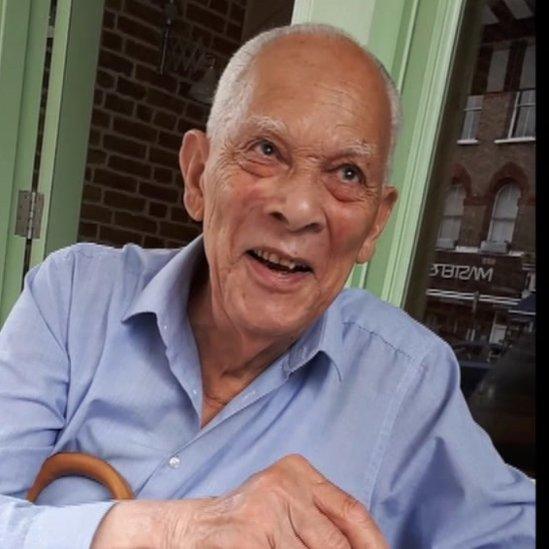
Hundreds of people asked to attend the funeral of Flt Sgt Peter Brown, seen here on his 93rd birthday
However, organisers moved it after they were inundated with requests from the public to attend and neighbours campaigned for him to have a big send-off.
The neighbours told the BBC he rarely talked about his military service and, when he did, it was not in a "boastful" way.
One neighbour, Julian Futter, said he was amazed the funeral had turned into such a big occasion.
"We were just really keen he had a dignified and respectable send-off. We had no concept it would be at St Clement Danes. We just didn't want him to be buried alone."
He added the airman would be remembered on many levels.
"We knew him as Peter but, of course, he will be remembered as one of these incredibly brave men who flew a bomber at enormous risk to themselves."
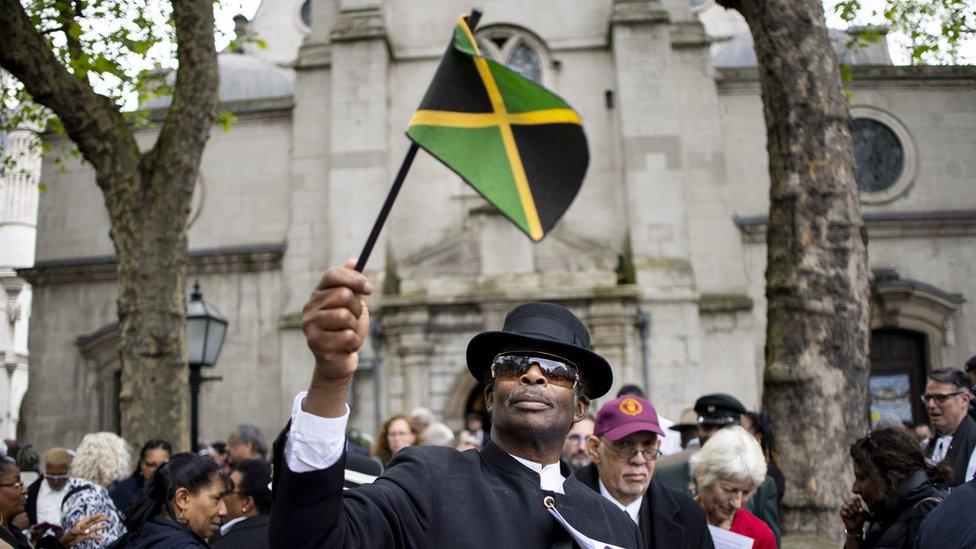
A mourner waved the Jamaican flag outside the church
Reverend (Group Captain) Ruth Hake, who conducted the funeral, said it was important the service was held in the "spiritual home of the Royal Air Force".
Before the service, she said Flt Sgt Brown had "committed a huge amount of his life to serving this country".
Having left no known relatives, the job of organising Flt Sgt Brown's funeral fell to his local authority, Westminster City Council.
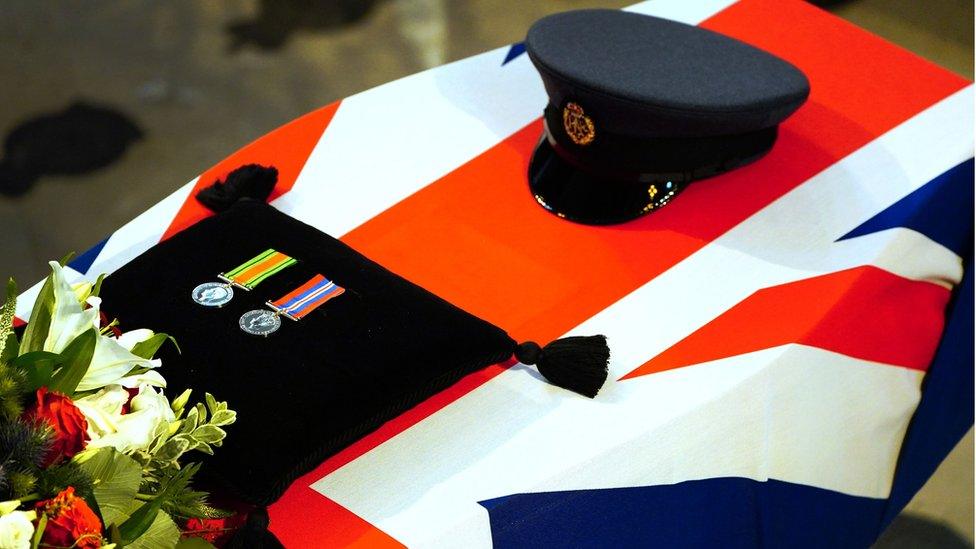
Flt Sgt Brown's coffin was draped with the union flag and carried an RAF hat and his war medals
Earlier this year, to anyone related to the airman to make contact, and later said it had received an "overwhelming" response from people interested in the funeral.
Fascinated by his story, a team of genealogists from Anglia Research, based in Ipswich, later took on the task of investigating his past and tracing any living family members.
Half a dozen of his relatives were due to attend the service, the council said.

Who was Flt Sgt Peter Brown?
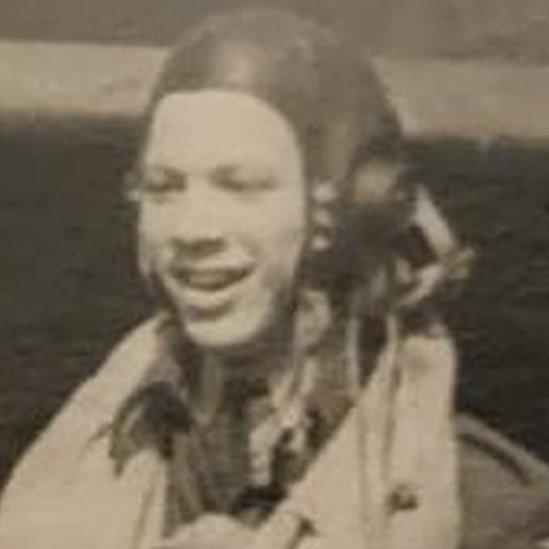
The RAF says Flt Peter Sgt Brown is "an example of the selfless contribution of all Commonwealth personnel"
Few knew much about about Flt Sgt Peter Brown's military service until after his death.
Born in Jamaica on 22 August 1926, he was one of 450 young black volunteers from the West Indies, Caribbean, Africa and parts of the UK who joined the RAF in World War Two and flew aircraft such as the Lancaster and Spitfire.
According to RAF records, he enlisted in the RAF Volunteer Reserve in September 1943 after travelling to the UK.
He trained as a wireless operator and air gunner, posted to RAF Scampton, Lincolnshire.
After the war ended, he re-enlisted in the RAF, working as a signaller.
Lisa Hill, a genealogist who researched Flt Sgt Brown's past, said he had flown five missions in Lancaster bombers before the age of 20.
"His bravery speaks for itself," she said.
She told the BBC that, having searched Jamaican newspaper archives, she found articles about him returning home to visit his mother.
"The warmth with which he is remembered both by friends, neighbours, local shop owners and, most significantly, his family is striking," she said.
He was passionate about cricket and, for 30 years until 2016, he was a member of Marylebone Cricket Club.
His neighbours said they used to hear him cheering at cricket matches in his flat.
Flt Sgt Brown lived alone. But, according to his neighbours, he was well-known in his community, well-supported and he was not lonely.

Follow BBC London on Facebook, external, Twitter , externaland Instagram, external. Send your story ideas to hellobbclondon@bbc.co.uk, external